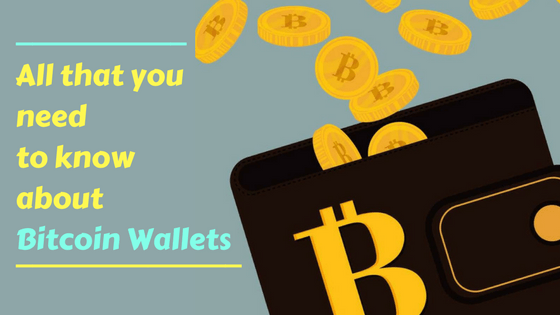Bitcoin Wallets are a very important aspect of the bitcoin trade. Think of them as a bank account – but more private, more secure and a little more complicated. There is only one way to store Bitcoins – in a Bitcoin wallet. There are a number of different types of the wallet which one can choose based on their needs.
Understanding Public Address and Private Key
However, before we take a detailed look at the different kinds of wallets, it is essential to understand how the wallet system functions. There are two sets of keys – one public and one (or more) private which each user possesses.
The public key (also known as the public address) is basically your wallet address which you give to people who would transfer your Bitcoins to your wallet using this public address. It acts like a real-world counterpart of an account number. The only difference here is that anyone who has your public key can see the funds in your accounts (though they can’t spend or alter them).
The private key, however, plays a much bigger role. While the public key allows you to get Bitcoins from others, the private key determines the sending of Bitcoins. Each wallet contains one or more private keys which are stored in the wallet file. This is essential for the safety of all transactions from your wallet. The safer your private key, the safer your Bitcoins are! Let us take a closer look at the different kinds of Bitcoin wallets.
Different Kind of Bitcoin Wallets
Bitcoin Wallets can be sorted on the basis of various factors
- How do they store the key
- Are they physical or digital
- Do they support one currency or multiple currencies
- Are they purely a wallet service or are they an exchange-based wallet
There are a number of other sub-classifications in each of them as well. Here are some of the most popular kinds of wallets
The Primary Difference: Classification on the Basis of How The Key is Stored
Wallets can be classified into three types on the basis of how they store the keys:
- Wallets which store your keys with them
- Wallets which store your keys on a third party server
- Wallets which allow you to keep your keys
Basically, there are some wallets which store your private key with them – making it very vulnerable to attacks. This means that if the wallet is hacked, your keys get hacked along with it and the hacker gets complete access to all your Bitcoins and can spend them easily.
Some Bitcoin wallets tend to store your keys on a third party server, which ensures that even if the wallet is hacked, the keys remain secure and that both the services need to be hacked to gain access to the accounts. However, this too is unsafe to a certain extent.
The safest of the wallet services allow storing your keys on your device. These can be hardware wallets or wallets which can be set up on your phone or computers and give all the access to you.
Web Wallet
Web wallets are basically wallets which are based on a website and save your private key either with them or with a third party server. These kinds of wallets often allow you to directly purchase Bitcoins from their platform and then store it over there. Coinbase is one of the most popular examples of such a web-based wallet.
Exchange-Based Wallets
Exchange-based wallets are similar to online web wallets, with the only difference being the fact that they are not an independent wallet service, but a feature offered by a cryptocurrency exchange. Almost all cryptocurrency exchanges allow users to store their cryptocurrencies on the exchange’s platform. This is why cryptocurrency exchange hacks result in major losses. Some popular exchange based wallets are Binance, Bittrex, and Poloniex.
Desktop Wallets
Desktop wallets are basically wallets which can be installed and set up on your computer. These wallets give you the complete control of storing your private key. However, these wallets are quite a task to set up, as they often involved downloading the entire blockchain network on your PC. Desktop wallets are considerably safer than web wallets but not as safe as hardware wallets.
Hardware Wallets
Considered to be one of the safest kind of Bitcoin wallets, hardware wallets are actual physical devices which need not necessarily be connected to the internet at all times. These devices are virtually hack-proof and come with an advanced layer of security. The key to your wallet remains safely stored in the hardware device – making it impossible for anyone to steal your Bitcoins unless they are in the physical possession of the wallet. Trezor and Ledger are among the most popular hardware wallets.
Mobile Wallets
Over the recent years, there has been a significant development towards ‘mobile wallets’. These wallets allow you to store your cryptocurrencies on your phone and easily make transactions from there. Considering that smartphones have become a vital part of our day-to-day life, mobile wallets are becoming increasingly important these days.
Conclusion
While there are hundreds of wallets available in the markets – the best wallets are the one which offers you a combination of security as well as ease of use. No matter you get hold of Bitcoins – via a cryptocurrency exchange or a platform, or via mining using specific hardware, software and bitcoin mining calculators for them. Choose your wallet wisely!



